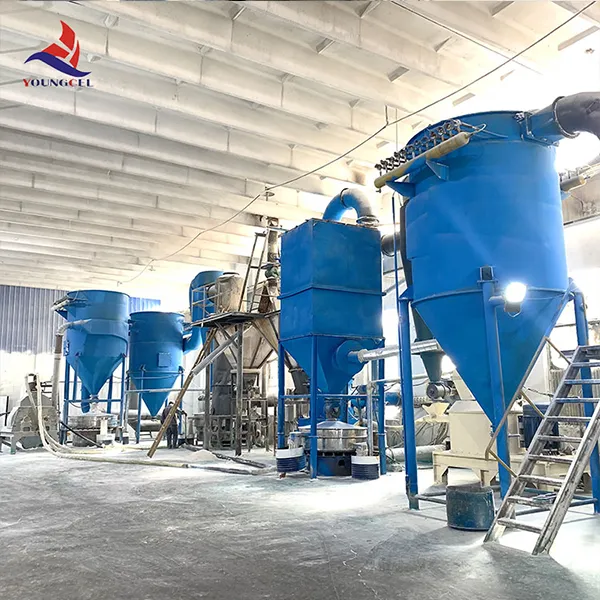The Role of Cement Additives in Modern Construction
Cement, a fundamental component in construction, serves as the binding agent for concrete, mortar, and various other construction materials. With the growing complexity and demands of modern infrastructure, the role of cement additives has become increasingly significant. These additives enhance various properties of cement and concrete, improving performance and extending the lifespan of structures.
Understanding Cement Additives
Cement additives are materials added to cement during its production or to concrete during mixing. These additives serve various functions, including altering the setting time, enhancing strength, and increasing durability. They can broadly be classified into two categories mineral additives and chemical additives.
Mineral Additives Common mineral additives include fly ash, silica fume, slag, and limestone powder. Fly ash, a byproduct of coal combustion, enhances the workability and durability of concrete. Silica fume contributes to higher strength and reduces permeability, making it ideal for structures exposed to harsh environments. Slag, produced from the smelting of iron ore, can improve the long-term strength of concrete. Limestone powder is often used for its ability to increase workability and reduce the amount of cement required, which can lead to a decrease in carbon emissions.
Chemical Additives These include superplasticizers, retarders, accelerators, and air-entraining agents. Superplasticizers improve the flow of concrete, allowing for easier placement without increasing the water content. Retarders slow the setting time, which can be beneficial in hot weather conditions or when working on large projects. Accelerators, on the other hand, speed up the curing process, making them suitable for cold weather applications. Air-entraining agents introduce tiny air bubbles into the concrete, enhancing freeze-thaw resistance and increasing durability.
Benefits of Using Cement Additives
1. Enhanced Strength and Durability The incorporation of additives can lead to significant improvements in the compressive strength of concrete. For instance, using silica fume in concrete mixes can increase strength up to 30% compared to traditional mixes. Additionally, additives help mitigate issues like shrinkage, cracking, and wear, leading to longer-lasting structures.
cement additives

2. Sustainability With global construction contributing significantly to carbon emissions, the use of supplementary cementitious materials (like fly ash and slag) in concrete production reduces the reliance on Portland cement. This not only lowers greenhouse gas emissions but also promotes recycling of industrial byproducts.
3. Improved Workability Additives like superplasticizers enhance the workability of concrete mixes, allowing for better placement and finishing. This is particularly beneficial for intricate designs and helps reduce labor costs and construction time.
4. Regulating Setting Times The ability to modify the setting time of concrete is crucial in various situations. For instance, in hot weather, retarders can be used to ensure proper curing, while accelerators can be applied in cold conditions to speed up the hardening process.
Challenges and Considerations
While the advantages of cement additives are clear, their successful application requires careful consideration. The interaction between various additives must be understood to avoid adverse reactions that could compromise concrete quality. Furthermore, local regulations and standards regarding the use of certain additives must be adhered to, ensuring compliance with safety and performance criteria.
Additionally, the sourcing and quality of additives can vary significantly. It is imperative for engineers and contractors to collaborate closely with suppliers to ensure that the materials used meet the specific requirements of the project.
Conclusion
Cement additives play a pivotal role in modern construction, addressing the challenges posed by evolving infrastructure needs. By improving the properties of cement and concrete, these additives contribute to more sustainable, durable, and efficient construction practices. As the industry continues to innovate, the development and application of new additives will undoubtedly enhance the effectiveness of cement, ensuring that it meets the demands of contemporary architecture and construction. By embracing these advancements, we can build a future that prioritizes sustainability and resilience in our built environments.
-
Rdp Powder: Key Considerations for Wholesalers in the Building Materials IndustryNewsJul.08,2025
-
Key Considerations for Wholesalers: Navigating the World of Hpmc - Based ProductsNewsJul.08,2025
-
Hpmc Detergent: Key Considerations for WholesalersNewsJul.08,2025
-
Key Considerations for Wholesalers: China Hpmc For Tile Adhesive, Coating Additives, Concrete Additives, and MoreNewsJul.08,2025
-
Crucial Considerations for Wholesalers: Navigating the World of Construction MaterialsNewsJul.08,2025
-
Key Considerations for Wholesalers Sourcing Additive For Cement, Additive For Concrete, Additive For Putty from Additive Manufacturer Shijiazhuang Gaocheng District Yongfeng Cellulose Co., Ltd.NewsJul.08,2025




